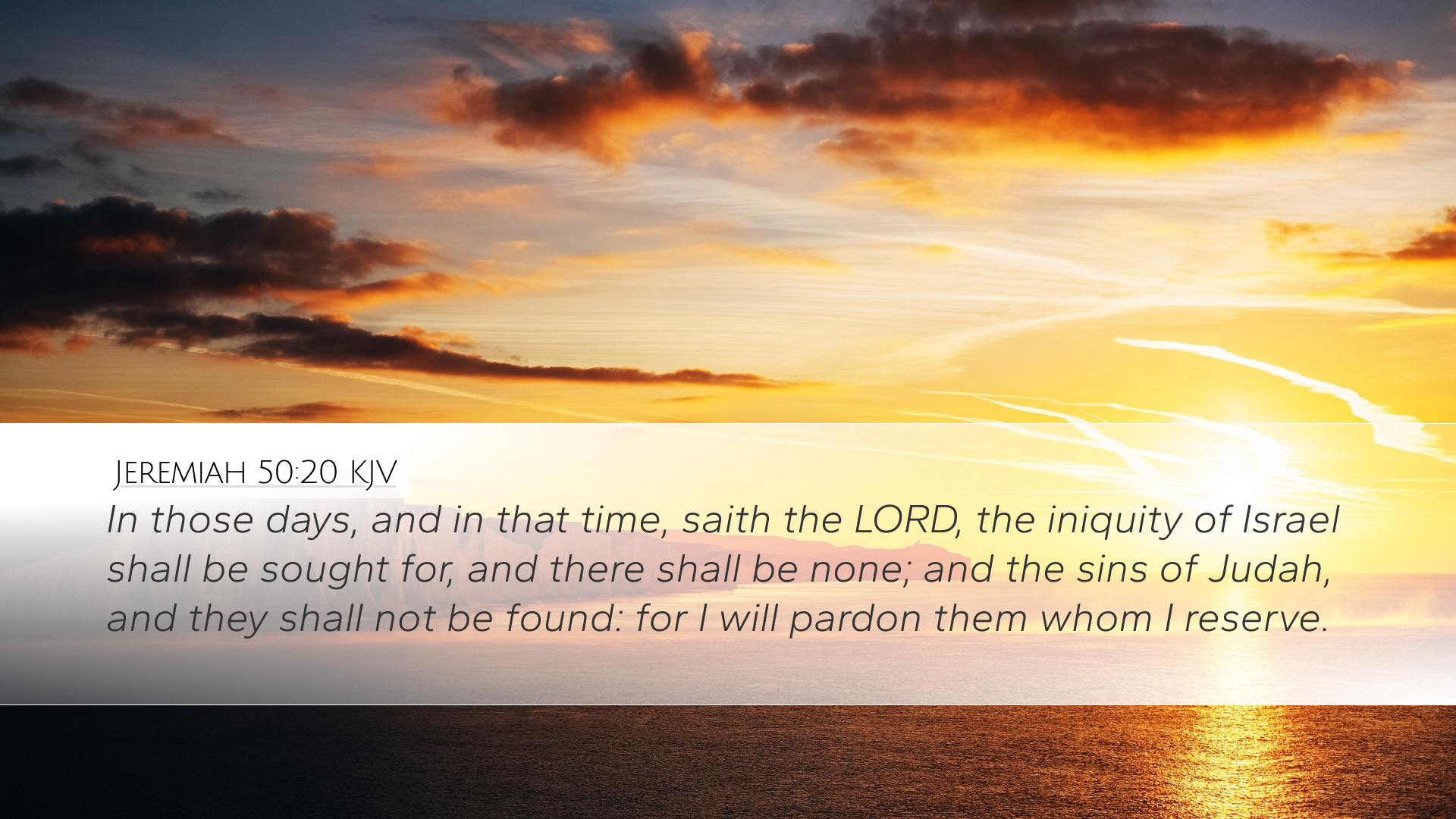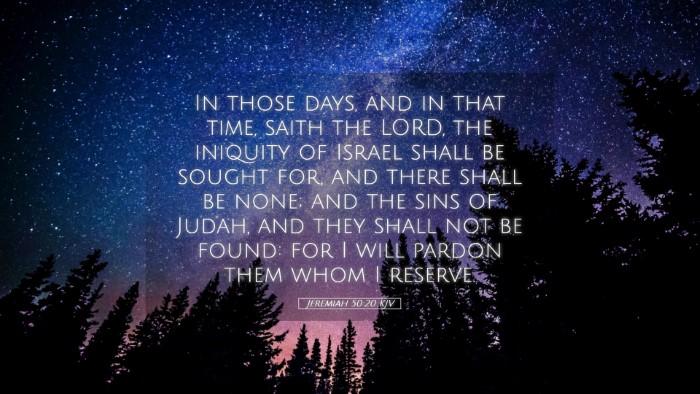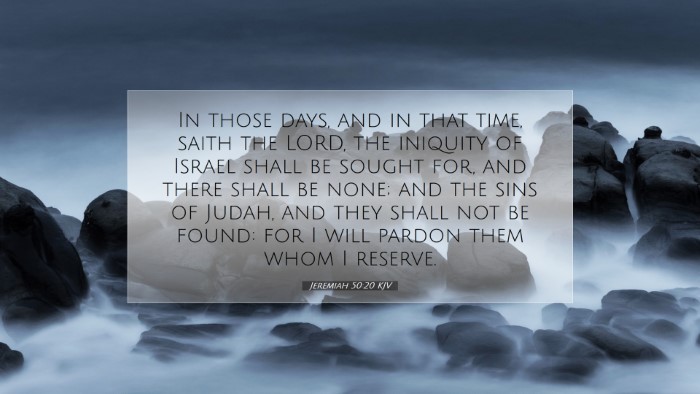Commentary on Jeremiah 50:20
Verse Context: Jeremiah 50:20 states, "In those days, and in that time, saith the LORD, the iniquity of Israel shall be sought for, and there shall be none; and the sins of Judah, and they shall not be found: for I will pardon them whom I reserve."
General Background
This verse comes at a pivotal moment in the Book of Jeremiah, where the prophet speaks about the ultimate restoration of Israel and Judah following their periods of judgment and exile. The theme centers around divine forgiveness and restoration, highlighting the grace of God amid judgment.
Thematic Insights
-
Restoration and Forgiveness:
Jeremiah offers a message of hope. In the context of Israel's bleak circumstances, God promises that their sins will be blotted out, symbolizing complete restoration. The public domain commentaries suggest that this indicates the nature of God's mercy; He desires to restore His people more than they desire restoration.
-
The Iniquity of Israel:
The phrase "the iniquity of Israel shall be sought for, and there shall be none" points to the profound transformation that occurs in the life of a repentant nation. Albert Barnes observes that God will exhaustively search for sin among His people, but will find none, indicating that through genuine repentance, their wickedness is removed.
-
Judgment vs. Mercy:
The tension between judgment and mercy is evident in this passage. Adversity leads to repentance; as A. Clarke emphasizes, the experience of God’s judgment compels Israel to turn back to Him, and in doing so, they find forgiveness. This duality is crucial for understanding the nature of God's work among His people.
-
The Role of God's Remnant:
God states, "for I will pardon them whom I reserve." This echoes the biblical theme of a remnant that will be preserved through trials. Matthew Henry elaborates that this reserved remnant signifies those who remain faithful despite the surrounding apostasy, highlighting the concept of a faithful minority who experience God’s grace amidst widespread sin.
Exegetical Notes
Hebrew Language Analysis: The term translated as "iniquity" (עָוֹן, avon) specifically relates to moral perversion, suggesting a deep-seated distortion of what is right. The promise that it will be "sought for" implies a diligent searching, affirming God’s meticulous nature in dealing with sin.
Theological Implications
-
Divine Sovereignty:
This verse underscores God's absolute sovereignty over sin and redemption. He possesses the authority to forgive and to restore. The assurance that sins will not be found emphasizes the cleansing power of God’s forgiveness.
-
Nature of Repentance:
The text suggests that a genuine return to God leads to complete absolution. This is foundational for the doctrine of repentance, where true contrition results in God’s forgiveness, a theme prevalent in Christian theology.
-
Historical Context:
During Jeremiah's time, both Israel and Judah had faced severe consequences for their disobedience. The backdrop of Babylonian captivity serves as a reminder that while God disciplines His people, His ultimate goal is restoration, reinforcing His covenantal love.
Practical Applications
-
Importance of Repentance:
Church leaders should emphasize the importance of true repentance in their ministries. The promise of forgiveness serves as a motivation for congregants to seek genuine restoration with God.
-
Hope for the Sinful:
This verse offers hope not only to the faithful but also to the lost, indicating that no sin is too great for God's mercy. Pastors can use this to encourage those who feel they are beyond redemption to turn back to God.
-
Encouraging Faithfulness:
The concept of a remnant challenges contemporary believers to remain steadfast in their faith amidst societal decline. Faithfulness to God leads to His divine favor, as seen in the lives of those whom He reserves.
Conclusion
Jeremiah 50:20 encapsulates a profound promise of forgiveness and restoration. Through the lens of public domain commentaries, we see the interplay of God’s justice and mercy, teaching us significant theological and practical insights. May ministers, students, and scholars alike embrace the transformative message contained within this verse, finding both a call to holiness and a promise of grace.


